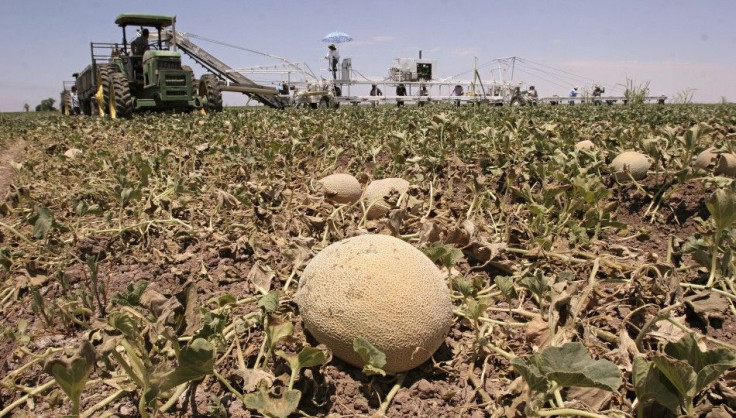Listeria Update: Death Toll Reaches 21 in Almost Half the Country

More than a hundred people from 24 states have been confirmed as infected with the deadly Listeria monocytogenes bacteria linked to Colorado-grown cantaloupes, the U.S. Centers for Disease Control and Prevention said Friday.
As of Oct. 7, listeria-tainted cantaloupes from Colorado have sickened 109 people and claimed 21 lives in 24 states, federal officials say.
On Sept. 12, the CDC first announced that the death toll reached two after a bad cantaloupe was consumed and the outbreak had only spread to three states at the time.
A week earlier, the CDC had reported a total of 84 infections and 15 deaths attributed to the Listeria outbreak in 19 states. Deaths in the outbreak have now been recorded in 12 states from Colorado to New York, MedPage Today reports.
The death toll is currently at 21, spawning from the disease-ridden fruit that has sickened a number of residents in 24 states to date.
A listeria infection can be particularly dangerous for pregnant women - resulting in a possible miscarriage - people over the age of 60 and those with compromised immune systems, health officials said.
Iowa health officials told reporters last Wednesday that a pregnant woman suffered a miscarriage after eating cantaloupe containing listeria, a rare yet serious food-borne bacteria-caused illness that arose in early September.
According to the CDC, pregnant women are about 20 times more likely than other healthy adults to get the bacterial infection, and roughly 17 percent of listeriosis cases occur during pregnancy, ABC News reports.
CDC officials say they fear that the illness and death count - the highest in a known food outbreak since tainted peanuts were linked to nine deaths almost three years ago - could go even higher.
Jensen Farms, said to be the culprit of the tainted cantaloupes, has recalled Rocky Ford-brand cantaloupes shipped from July 29 through Sept. 10 to Illinois, Wyoming, Tennessee, Utah, Texas, Colorado, Minnesota, Kansas, New Mexico, North Carolina, Missouri, Nebraska, Oklahoma, Arizona, New Jersey, New York and Pennsylvania.
The recalled cantaloupe may be labeled Colorado Grown, ''Distributed by Frontera Produce, ''Jensenfarms.com or Sweet Rocky Fords. Not all of the recalled cantaloupes are labeled with a sticker, the FDA said in a statement.
In mid-September, the agency said that illnesses grew to 55 people in 14 states from eating the contaminated cantaloupes.
We are deeply saddened to learn that cantaloupes grown on our farm have been linked to the current listeria outbreak. Our hearts go out to those individuals and their families who have been affected by this terrible situation, said Jensen Farms in a statement.
Symptoms of the infection include fever and muscle aches, diarrhea, headaches, stiff neck and confusion, according to the CDC.
Antibiotics are effective in treating the infection in most cases.
The CDC has reported Listeria-related illness in Alabama, Arkansas, California, Colorado, Idaho, Illinois, Indiana, Iowa, Kansas, Maryland, Missouri, Montana, Nebraska, New Mexico, New York, North Dakota, Oklahoma, Oregon, South Dakota, Texas, Virginia, West Virginia, Wisconsin, and Wyoming. Colorado has the most illnesses, with 32 sickened. Texas has 16 reported illnesses, New Mexico has 13 and Oklahoma has 11.
© Copyright IBTimes 2024. All rights reserved.





















